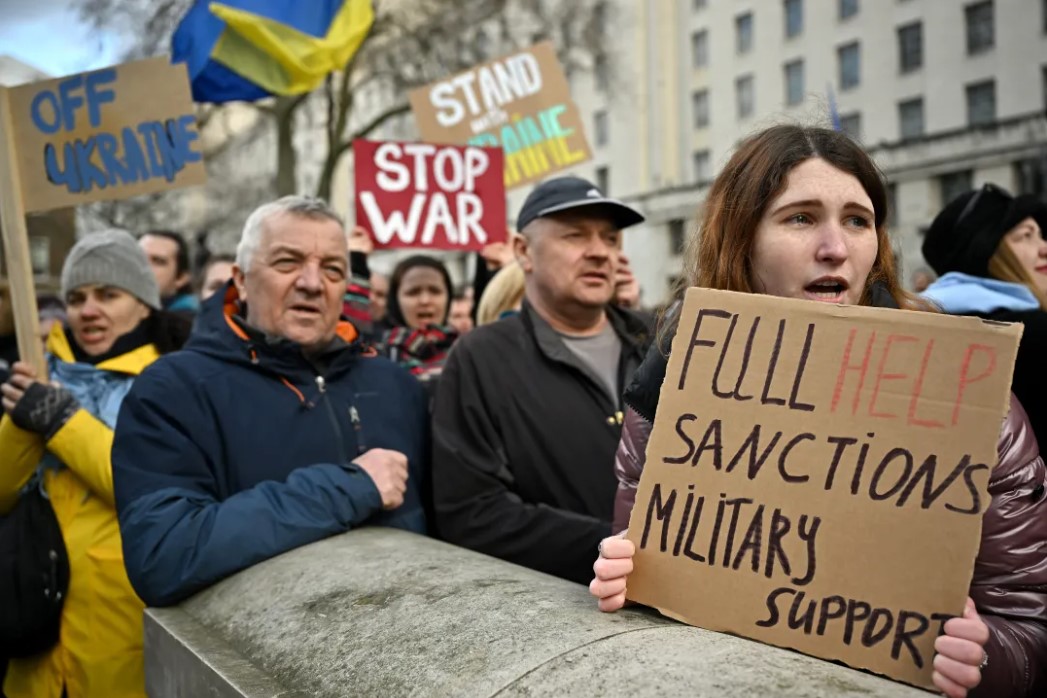EU Commissioner for Enlargement Marta Kos stated that the European Union should open the first negotiation cluster on Ukraine’s accession to the EU.
Asta Skaisgirytė, chief foreign policy adviser to Lithuanian President Gitanas Nausėda, emphasized that giving up on Ukraine's NATO membership prospects would be a mistake.
The U.S. Senate may begin work by the end of the month on a bill proposing 500% tariffs against countries purchasing Russian energy resources, according to Senate Republican Majority Leader John Thune.
Speaker of the U.S. House of Representatives Mike Johnson says he and many lawmakers support a Senate-drafted bill to strengthen sanctions against Russia. Johnson expressed support for Congress’s efforts to impose sanctions on the Kremlin over Russia’s war against Ukraine. “Many members of Congress want us to sanction Russia as hard as possible. And I support that,” he stated.
U.S. Republican Senator Lindsey Graham believes that the Russian Security Council deputy chairman’s statements prove that “Putin and Russia are not interested in peace at all.”
French Foreign Minister Jean-Noël Barrot called for sanctions that would force the Russian side to implement a ceasefire in Ukraine.
European Commission representative Paula Pinho reported that lowering the price cap on Russian oil “could be a topic for discussion” at the June G7 summit in Canada.
Roderich Kiesewetter, deputy chair of the Bundestag committee overseeing intelligence services, proposes expelling Russian diplomats and agents who remain in Germany.
“We must expel the remaining agents and diplomats,” said Kiesewetter, linking the move to the rise in Russian cyberattacks and sabotage.
According to him, Berlin should also close the “Russian House” — a cultural center controlled by the Russian Foreign Ministry and already under EU sanctions.
German police reported a record level of cybercrime in the country last year, caused by hacker attacks from pro-Russian and anti-Israeli groups.
Moldova’s Ministry of Foreign Affairs warned citizens about the dangers of traveling to Russia due to the deteriorating security situation in the region and incidents of coercive measures applied by Russian authorities against foreign immigrants.
Sanctions over the war in Ukraine have severely impacted Russia’s diamond exports to the global market: in 2024, Russia exported the smallest volume of precious stones in over ten years of available statistics. According to the Kimberley Process, exports dropped by 6.27% year-on-year in physical terms to 30.37 million carats. This figure is lower than in 2015 — the year the first sanctions were imposed over Crimea’s occupation — when 30.8 million carats were exported. In 2021, exports had reached 48.6 million carats. In monetary terms, diamond exports also dropped sharply: in 2024, they were 28.6% lower than the previous year, totaling $2.62 billion. According to the Kimberley Process, this was due in part to falling prices for Russian diamonds, which declined by 24% year-on-year to $86.36 per carat.
Russian energy, transport, and communications companies have refused to switch to Russian-made software due to a lack of funds.
The share of Russian software at engineering enterprises does not exceed 30%.
Sales of Lada cars in Russia from January to May 2025 amounted to 131,200 units — 26.3% lower than during the same period last year. The volume of manufactured products also decreased compared to the previous year.
The international aerospace salon that was supposed to take place this summer in Zhukovsky, near Moscow, will not be held once again. The country’s largest air show, held since 1993 and granted federal status in the mid-2000s, is being canceled for the third year in a row. There is nothing to showcase at the salon, which before the full-scale war attracted the world’s leading manufacturers: Russia’s flagship aerospace projects — the MS-21 and SJ-100 — have not been completed.
In April, Russian agricultural organizations sold 3.756 million tons of grain and leguminous crops — 39.1% less than in April last year (6.169 million tons). Wheat sales in particular fell to 2.525 million tons from 4.169 million tons; corn sales dropped to 400,100 tons from 707,100 tons.
Russia’s economy has entered a cooling phase, with more and more real-sector industries showing declines, said Minister of Economic Development Maksim Reshetnikov.
In 2024, nearly half (46.5%) of Russians with orphan (rare) diseases were forced to interrupt their essential therapy due to lack of medication. Diagnoses included cystic fibrosis, hypophosphatasia, lysosomal acid lipase deficiency, phenylketonuria, and Fabry and Pompe diseases. One-third of patients (33.7%) faced treatment pauses of 1–2 months. Treatment was interrupted for 3–4 months for 22.8% of patients, and for 5–6 months for 10.9%. Almost a third of patients — 32.6% — went without therapy for over six months. The main reason for treatment interruption in 70.7% of cases was medication shortages, while another 18.5% were denied treatment by doctors or local health departments, which also cited a lack of drugs.
Russia’s Ministry of Justice has proposed prohibiting individuals convicted of extremism-related charges and foreign nationals from being transferred to penal colonies in regions where their close relatives live.
The “mayor” of Kerch appointed by the Russian occupation authorities, Oleg Katorgin, deprived 40 staff members of bonuses because they didn’t like his posts.
In just two days in June, EU countries prevented more attempted border crossings from Belarus than in all of January.
Belarus’s negative trade balance in goods with non-CIS countries increased by more than 1.5 times over the past year.
In April, 52,468 people were hired in Belarus, while 70,230 were dismissed. This means that organizations lost 17,762 more specialists than they hired — the largest gap in the past six years. By sector, healthcare saw a serious outflow: nearly 2,800 people. Twice as many were fired than hired: 5,200 versus 2,500. Only the utilities sector lost more — over 4,000. Manufacturing lost almost the same number of workers as healthcare — nearly 2,800.
Main image: Ukrainians demonstrate in London, England, against the invasion of Ukraine and for sanctions against Russia, on February 24. Jeff J Mitchell/Getty Images





















